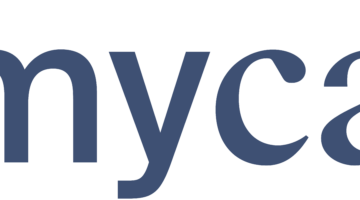
Gary J. Ross
As I mentioned last week in the discussion on lawyers teaching, law gives us the opportunity to do different things within the boundaries of a legal career. We all want to do different things. With the exception of certain potheads back when I was in college, I’ve never had anyone tell me they enjoy doing one thing again and again and again. I always hear people say they like a variety of work, a variety of food, a variety of partners, a variety of vacation destinations, etc.
Here is another thing you can do while being a lawyer, that is not exactly practicing law, but will have the effect of making you a better lawyer.

Calculate Your Firm’s Time-Saving Potential
Want more time for what matters most? MyCase streamlines your firm so you can focus on winning cases. See how much time you could save with our Law Firm Time Savings Calculator—try it now!
Small businessperson
A few years ago, being dissatisfied with whatever I was doing at the time, I got the bright idea to start my own business. But what to do? All I had were legal skills. (Well, that and waiter skills.) I spent a few weeks jotting down business ideas, but nothing clicked. I told a non-lawyer friend that I really wanted to have my own business but was having trouble deciding what it should be.
“Um, you’re a lawyer. Why don’t you just open a law practice?”
Lightbulb! Turned out I had a business I could open the very next day, and hadn’t even thought about it. Obviously, a lawyer offering legal services directly to the public for money isn’t going to be the next Amazon or Facebook, but it’s a business all the same.

How MyCase’s Smart Spend Can Help Increase Your Profits
This tweak to your financial management seems like a no-brainer.
Even if ultimately you want to have some other business, you can learn a thing or two — or 100 things — about running a business by starting your own practice, especially if you lease an office and hire employees. (Though if you do that, it might be difficult to leave it later, but people do manage to sell or turn over their law practices, so it can happen.)
I’ve touched on this subject before, but for a corporate lawyer, running a small shop and meeting payroll a couple of times a month enhances to the Nth degree one’s ability to advise clients, even larger clients. People have filled books with what they’ve learned hanging out a shingle, but here a few that stick out in my mind.
First, now that I’ve been on the business end of the flood of paperwork and annoying random insurance bills that come with hiring people, I’m not so quick to advise small business clients to consider every borderline person a W-2 employee instead of a 1099 just to be on the safe side.
Second, I’ve read Accounting for Lawyers, and have a little bit of a background in accounting. I can read the primary financial statements. But just like with a lot of things, I really learn something when I do it. I can tell that even using something simple like Quickbooks to keep track of my firm’s cash inflows and outflows has enhanced my ability to analyze financials. It’s noticeable.
Finally, I found out that just because in Biglaw I could bill dinner to a client didn’t mean my midnight burrito could be written off as a business expense. What’s up with that?
Clients need actionable advice. Leaving the Biglaw cocoon and become a businessman/woman does wonders for a lawyer’s ability to properly counsel clients. Seeing firsthand how legal matters fit into an overall business scheme, even for a small law shop, puts you in a much better position to advise clients.
Next week: Politician/Judge.
Gary J. Ross opened his own practice, Jackson Ross PLLC, in 2013 after several years in Biglaw and the federal government. Gary handles corporate and securities matters for startups, large and small businesses, private equity funds, and investors in each, and also has a number of non-profit clients. You can reach Gary by email at [email protected].